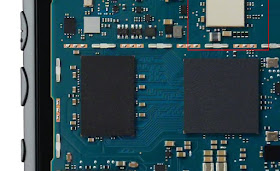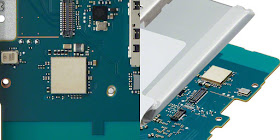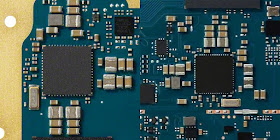The new Sony Walkmans have appeared on the Bluetooth certification site, the link can be found here, and apart from confirming the various model numbers (A100TPS, A105, A106, A107, ZX505, and ZX507), the certification does provide some information about the chipset used. Let's dig in.
Scrolling down the certification, we see Qualcomm Technologies, Inc. for the Host Subsystem and Murata Manufacturing Co., Ltd for the Controller Subsystem. So what does of all of this mean? To be honest, I have no idea, but I went searching for information and ran into this post. In the post, there is an explanation about the subsystems (which still goes over my head), but from my understanding you need a Host Subsystem with a controller Subsystem for Bluetooth to work, maybe someone can explain it better in the comments below since I may be oversimplifying this.
A Controller Subsystem must be eventually combined with a complementary Host Subsystem to create a complete Bluetooth core architecture required for operation.
The QDID for the Qualcomm part yields this. This is the QCA Fluoride Bluetooth. More on this in a second. Checking the Murata QDID, 127073, brings up this page. Success, we have a model number and some more information. The design description says WLAN+Bluetooth and has the model number as LBEE5ZZ1PJ. Searching on Google for that product brings up a product page on Murata's website.
Now back to the Qualcomm aspect, note the chipset used in the Murata Type 1PJ, Qualcomm, specifically, QCA9377-3. For those interested in the datasheet for the Type 1PJ, you can check it out here.
Searching for QCA9377-3 brings up this link from Qualcomm's site. There is even a link to Murata's website with their module using the Qualcomm chipset. Here is the product page from Qualcomm. This is how it is described:
High performance, low power single-stream 11ac MU-MIMO and Bluetooth 5 in a single chip solution.
The QCA9377 is a single-die wireless local area network (WLAN) and Bluetooth combination solution to support 1 × 1 802.11a/b/g/n/ac WLAN standards and Bluetooth 5.0 + HS, designed to deliver superior integration of WLAN/Bluetooth and low-energy technology.
So it looks like both the new Walkmans use the same BT/WLAN wireless chip since the Bluetooth certification is for all devices. Below is the block diagram from the website and it shows a Tensilica CPU, but I do not believe this is the main SoC, I suspect Sony is using dedicated SoC for Android OS. Once the new Walkmans are released, running CPU-Z on the new A and ZX should identify the SoC Sony is using and any other details.
 Back to the Murata Type-1PJ, looking at the photo from the website, I recall seeing something like this in a NW-ZX500 press photo. Likewise in a product video from Sony for the new A-Series, a similar chip can partly be seen in the top right corner. I have extracted the photo from the video and cropped the ZX500 press photos below showing the chip in question.
Back to the Murata Type-1PJ, looking at the photo from the website, I recall seeing something like this in a NW-ZX500 press photo. Likewise in a product video from Sony for the new A-Series, a similar chip can partly be seen in the top right corner. I have extracted the photo from the video and cropped the ZX500 press photos below showing the chip in question.
The chips not labelled in the photos from Sony but the colour and shape match almost dead on.
 | |
| Sony NW-A100 PCB |
 |
| Sony NW-ZX500 PCB |
The chips even share the same layout of components on the PCB between the A-Series and ZX-Series, so I am guessing the 2 Walkmans share the same chip here and this is the 1PJ. Hopefully this can be confirmed once the FCC documents appear or a teardown is posted by someone.
So there it is, the BT/WLAN chip has been identified. All that is left is to identify the main SoC. Not sure what Sony could use here, my guess is a Realtek SoC, maybe a Mediatek one but once someone has the devices, all that is required is to run CPU-Z to identify the chips inside.
Edit Oct 2019
I have checked the size of the chip on the PCB in the ZX500 in the image below and using the width of the player, 57.9mm and then the size in pixels, to get a scale, the chip below comes out to 7.24mm x 7.43mm, which matches the 7.2mm x 7.4mm from the chips product brief.
Update: Looks like I was mistaken, the small chip is not the SoC.
 |
| ZX500 (left) - A100 (right) |
If anyone finds anything else from the certifications or the rest of the links I posted, feel free to leave a comment below.





Thank you for sharing this!
ReplyDeletehello, Do you know if the ZX-507 will support TIDAL MQA OFFLINE MODE? Is it full Mqa? or rederer or decoder? thanks!
ReplyDeleteIt should support the offline mode but I am not sure what quality the app saves the files in. Could always test this on an android smartphone to see what quality the files are in offline mode.
Delete